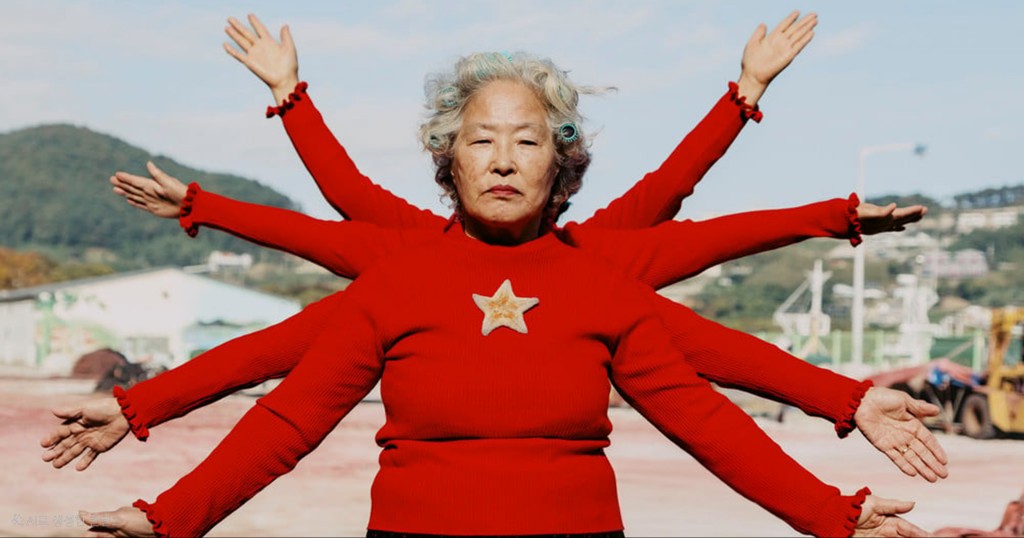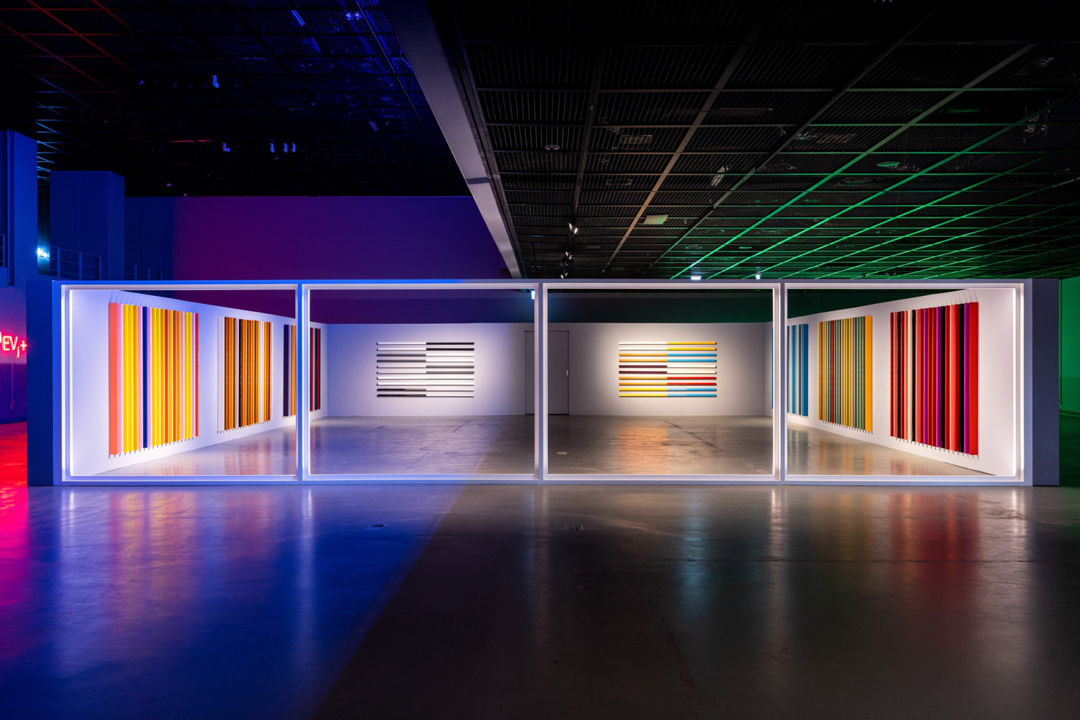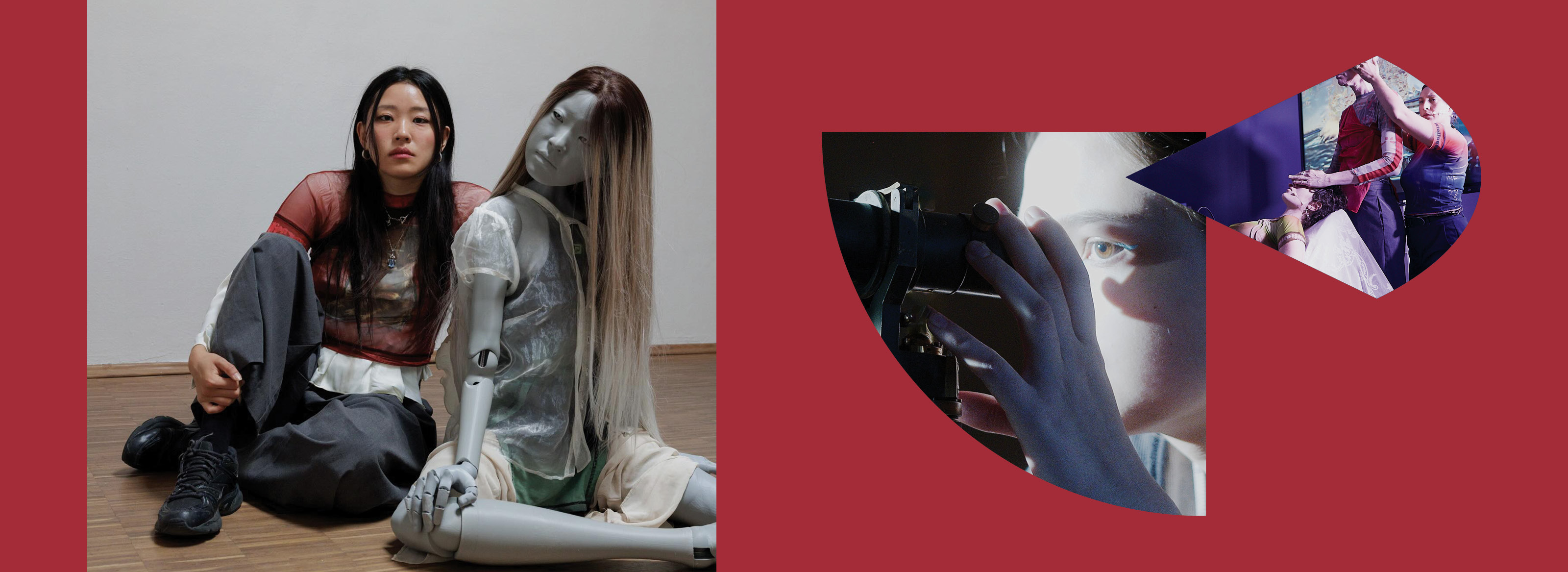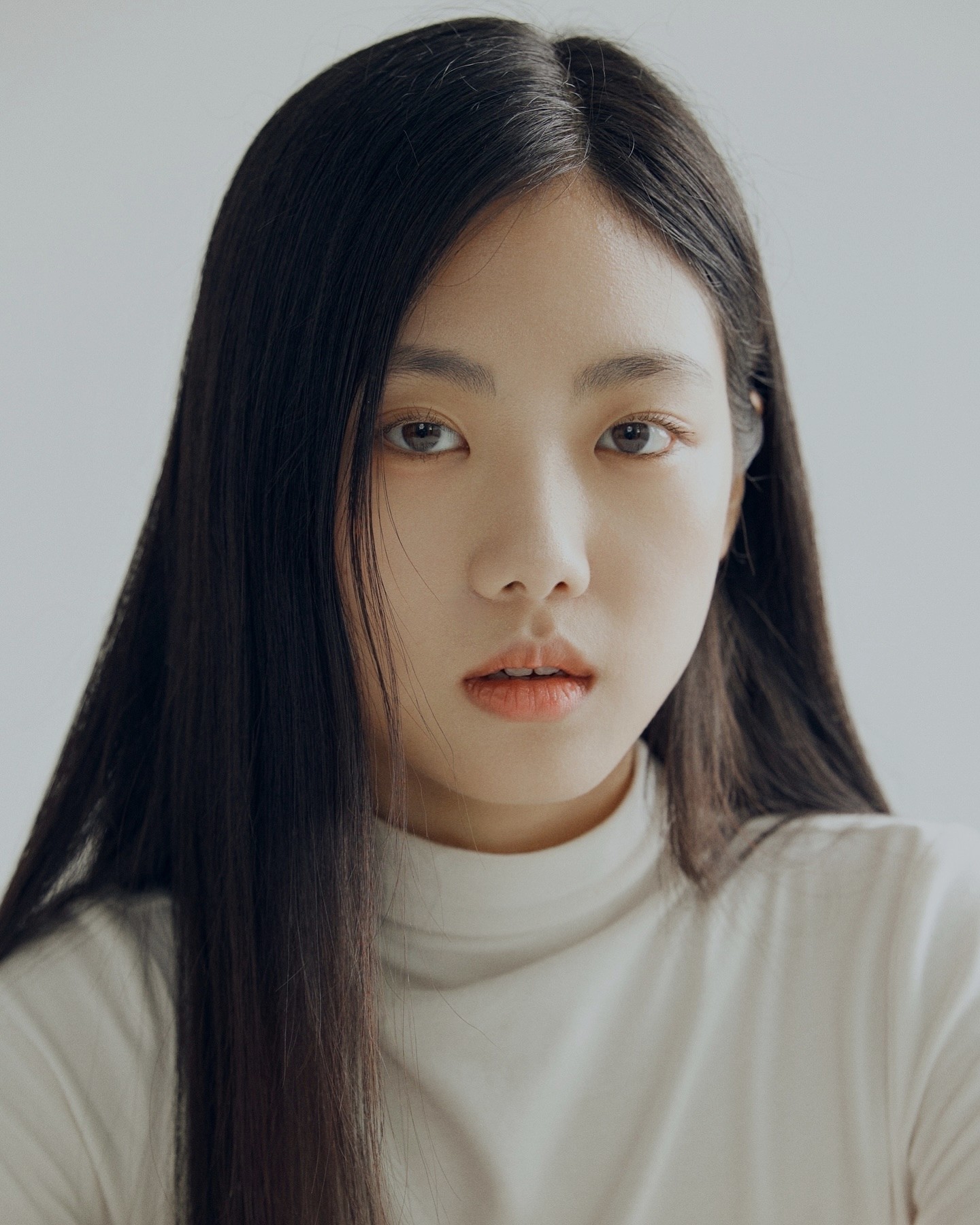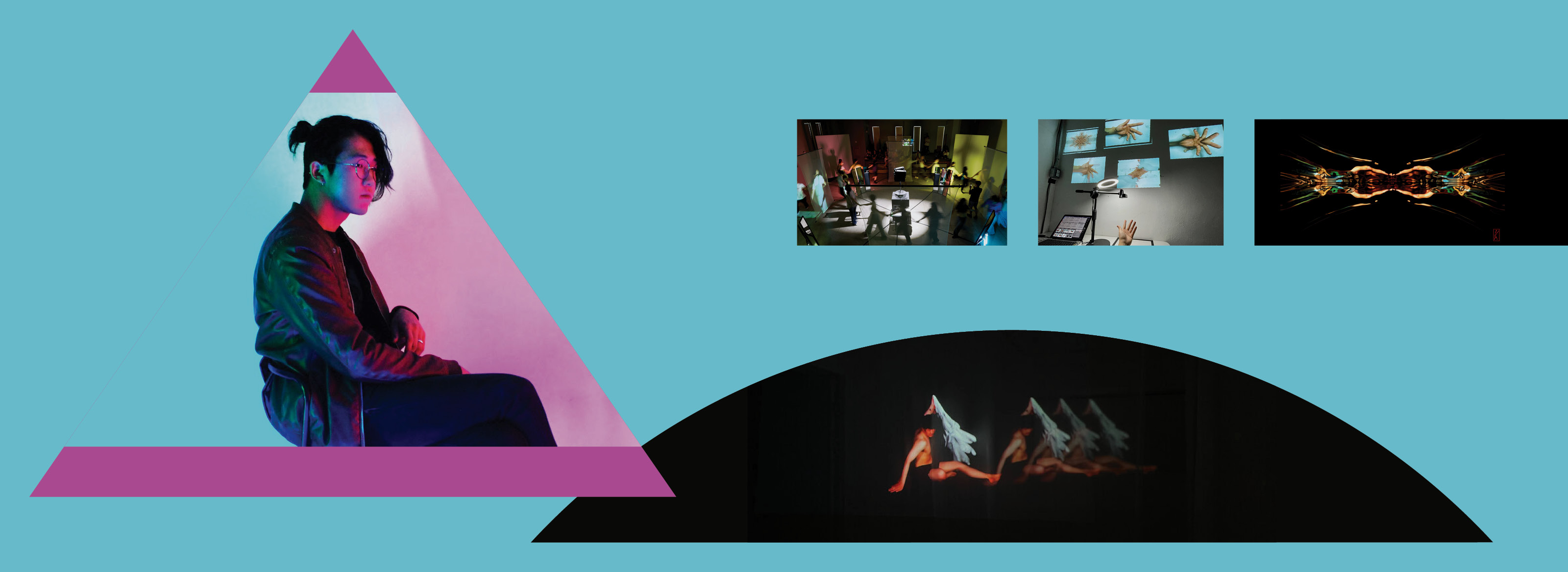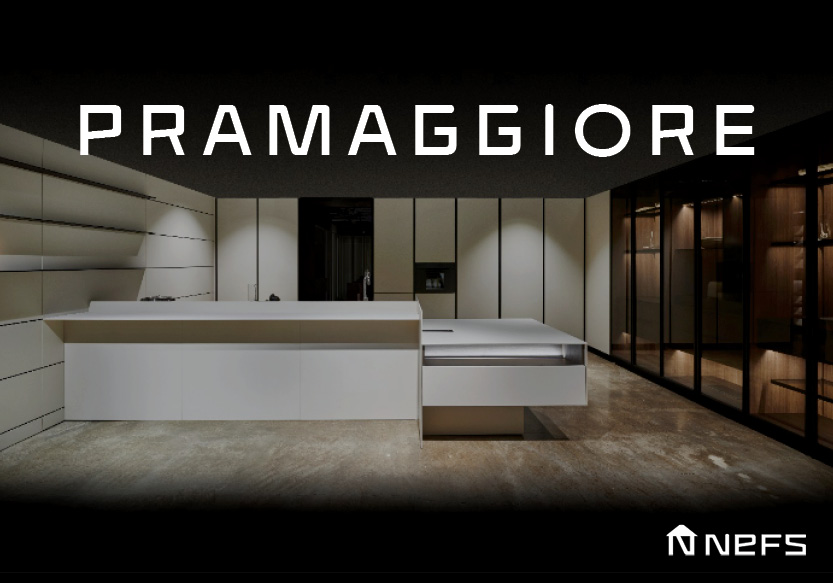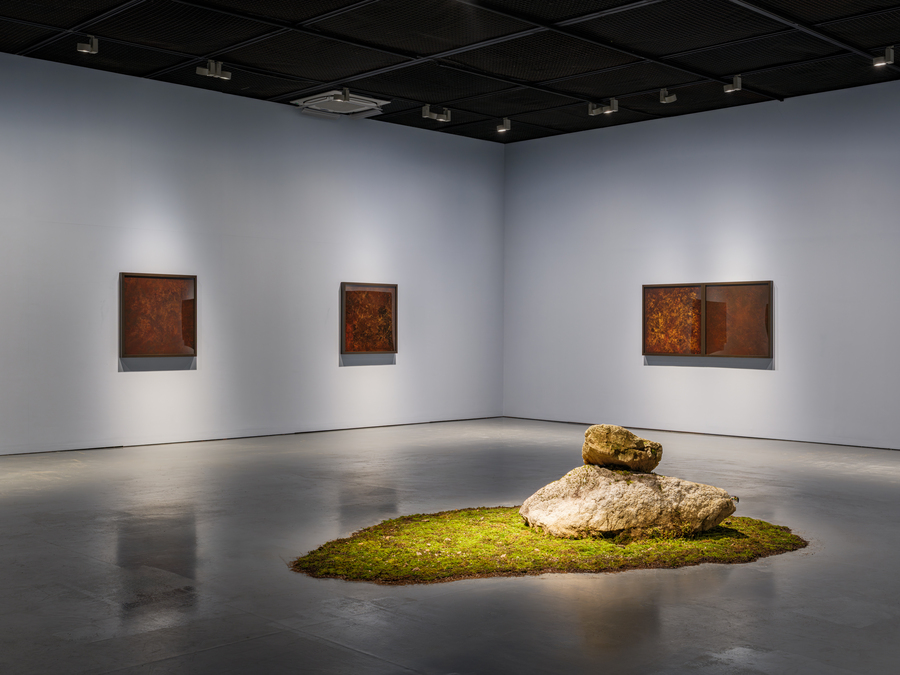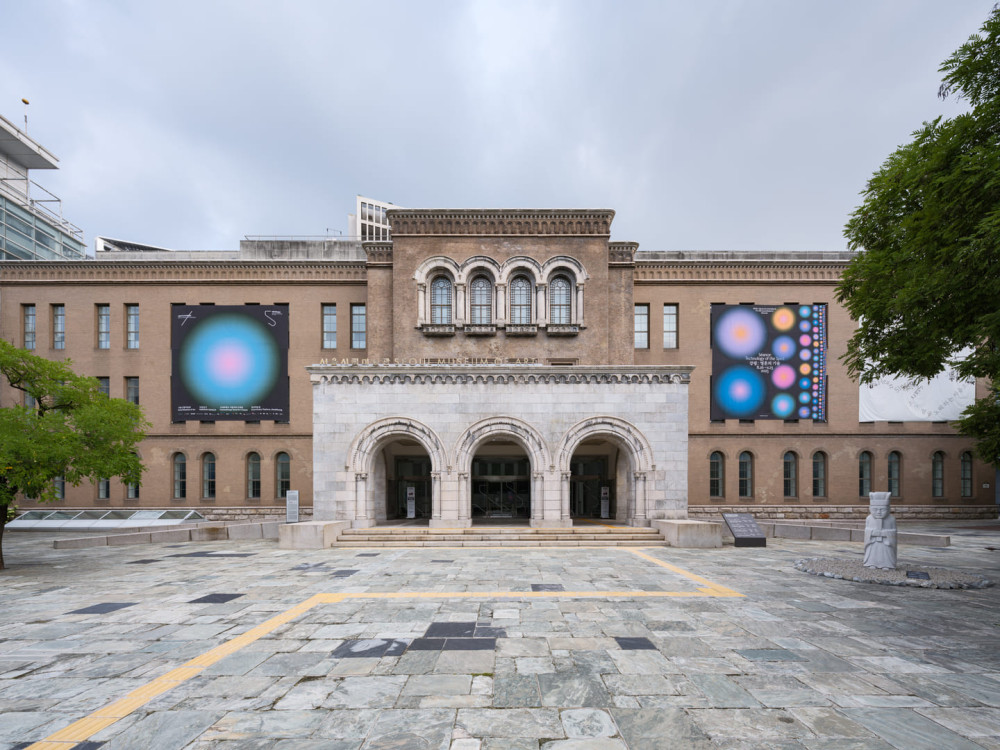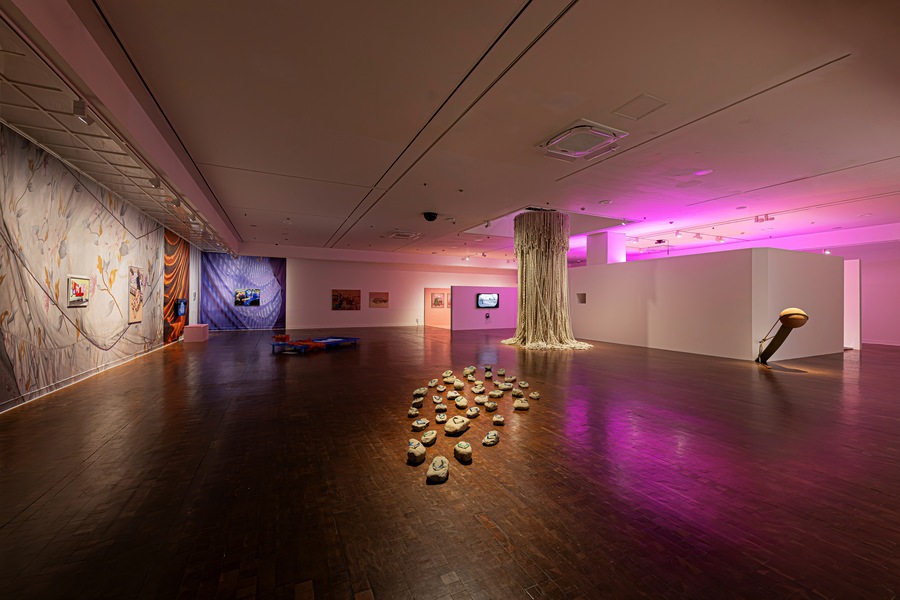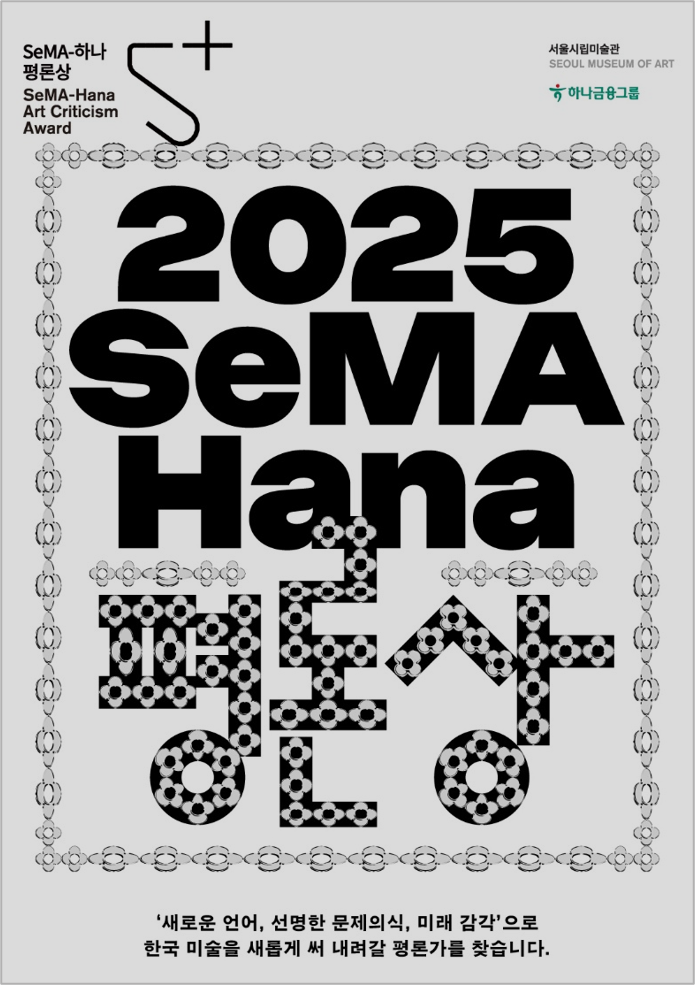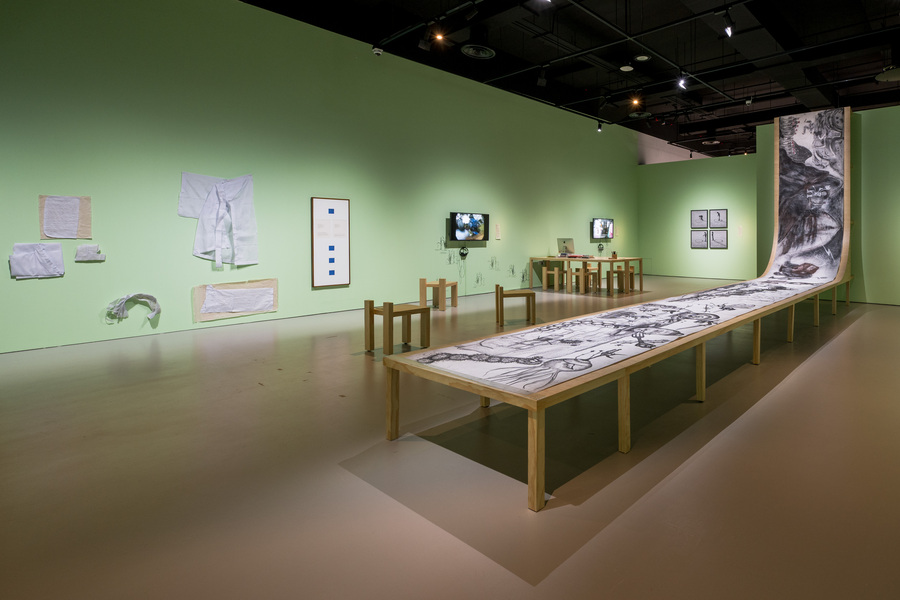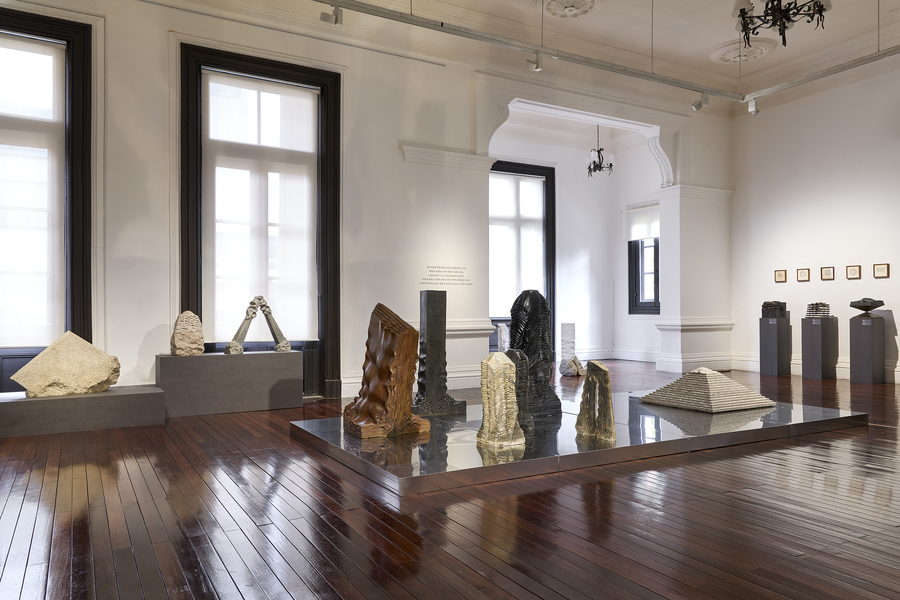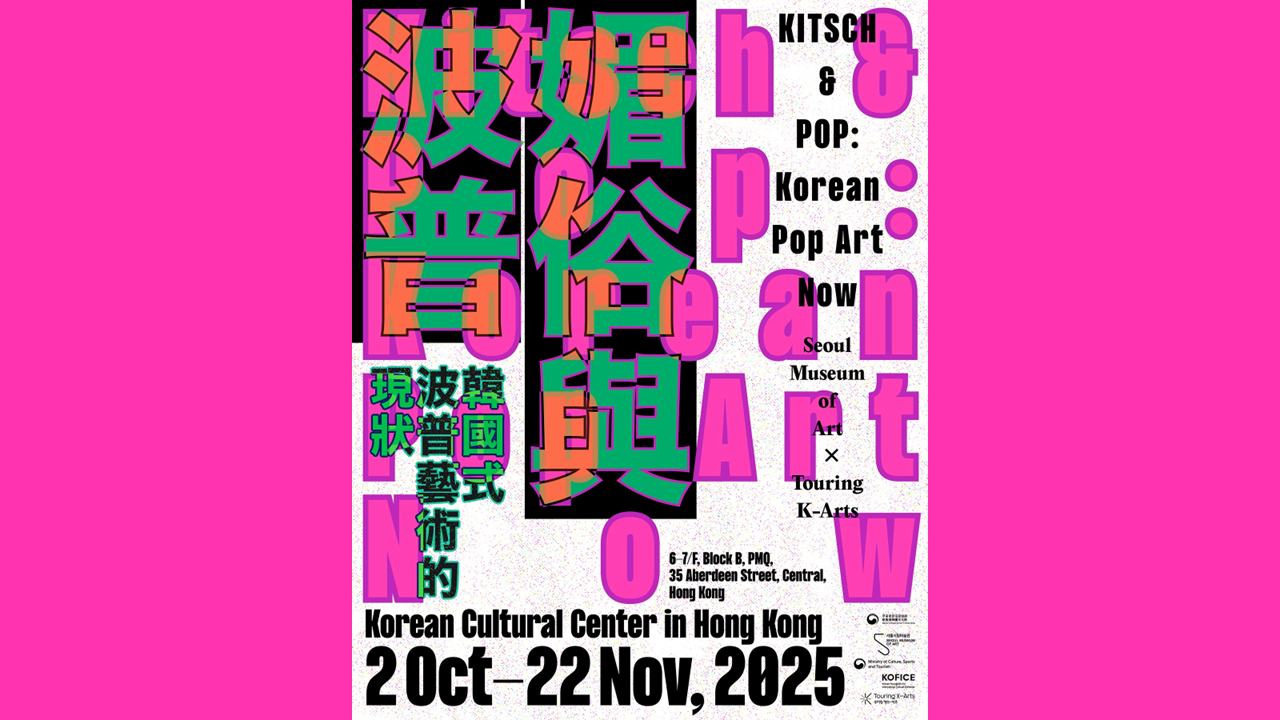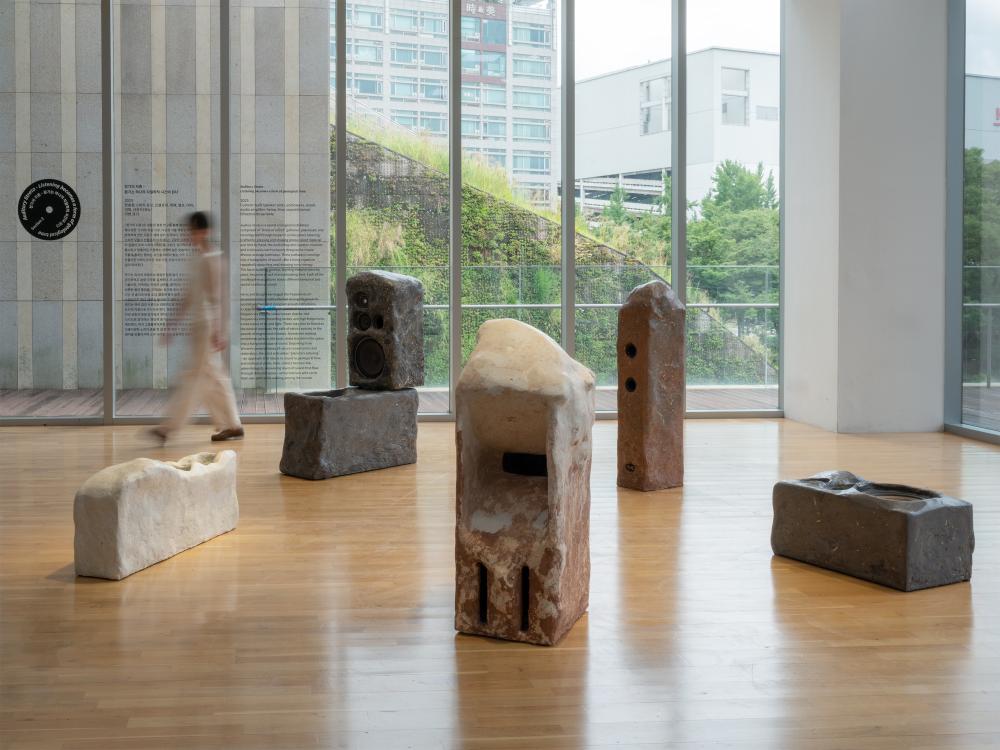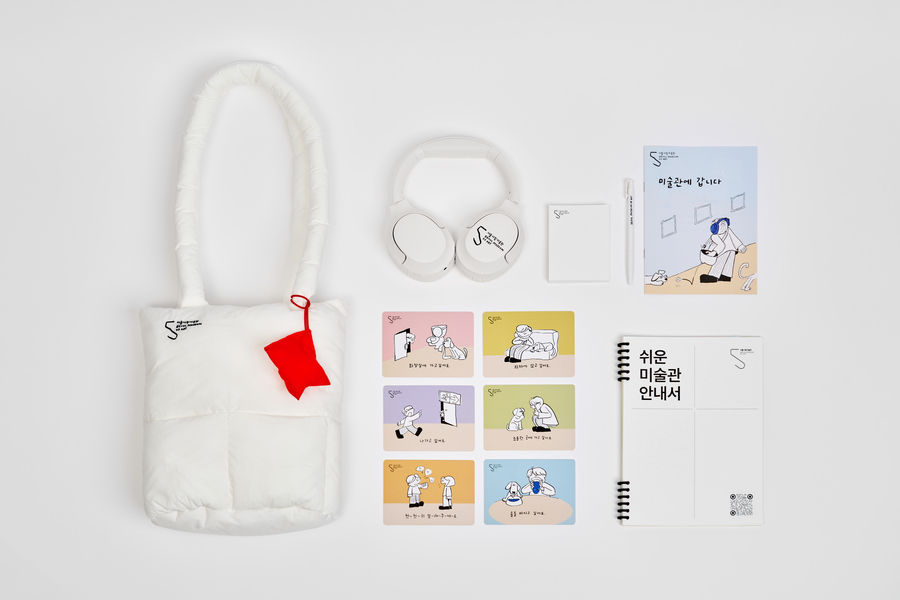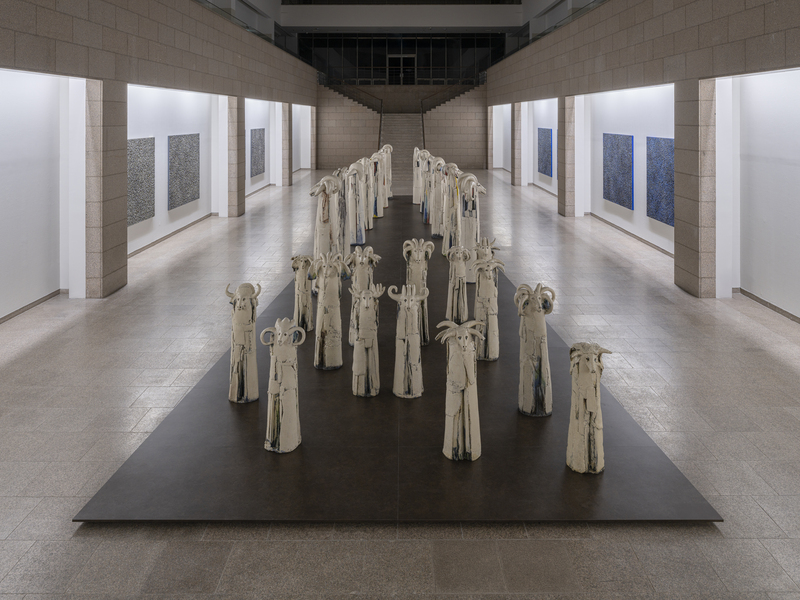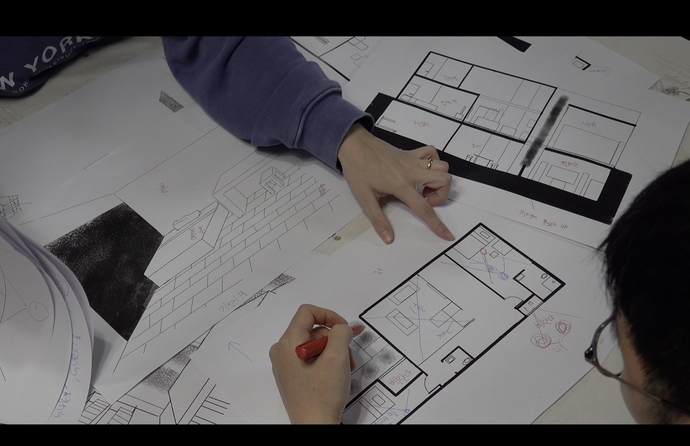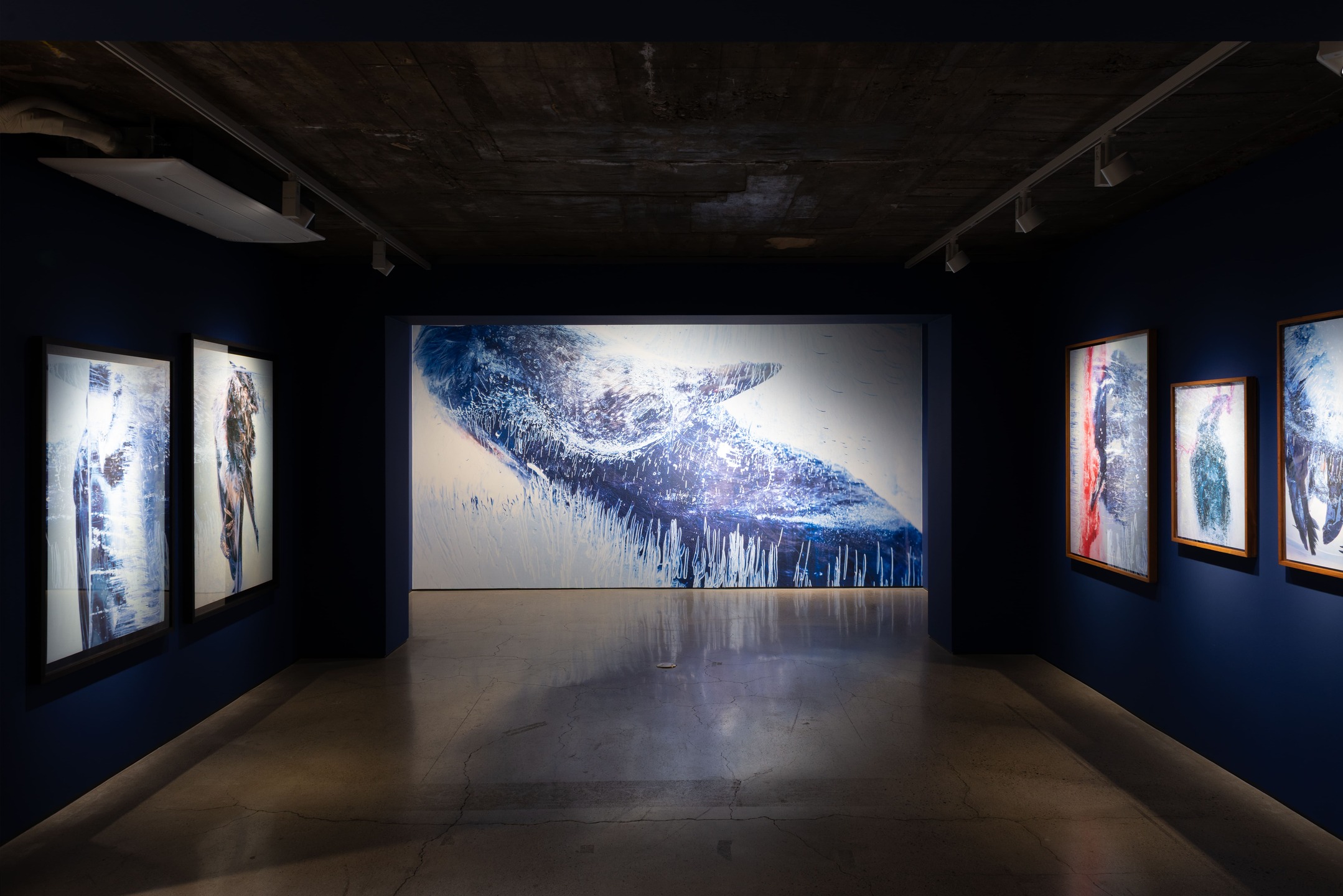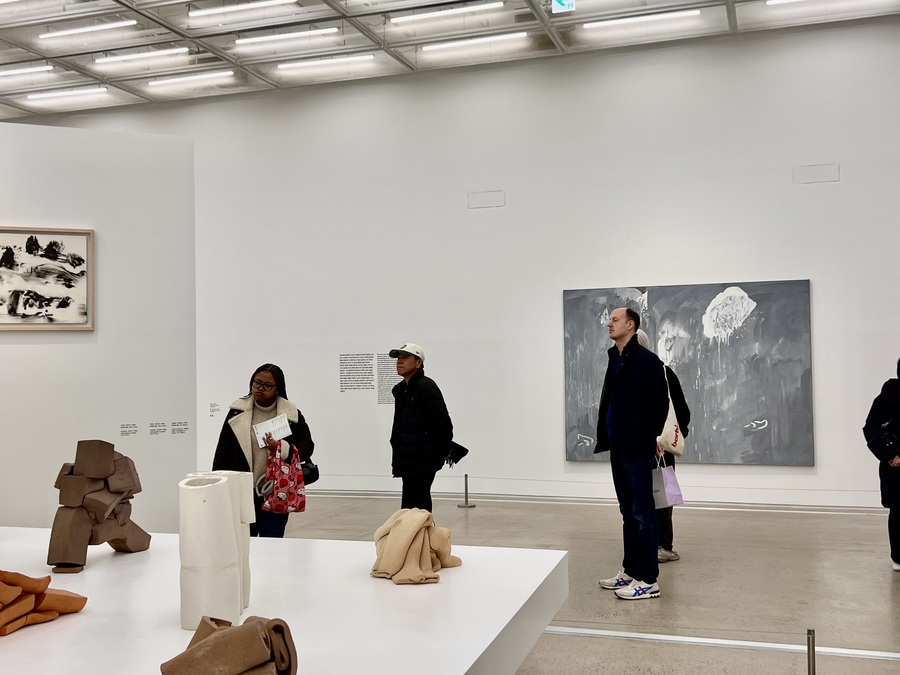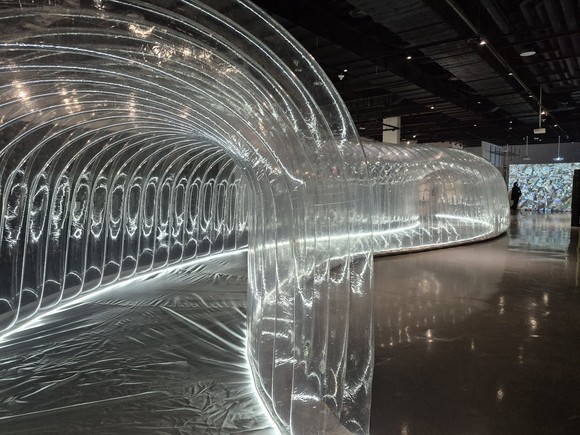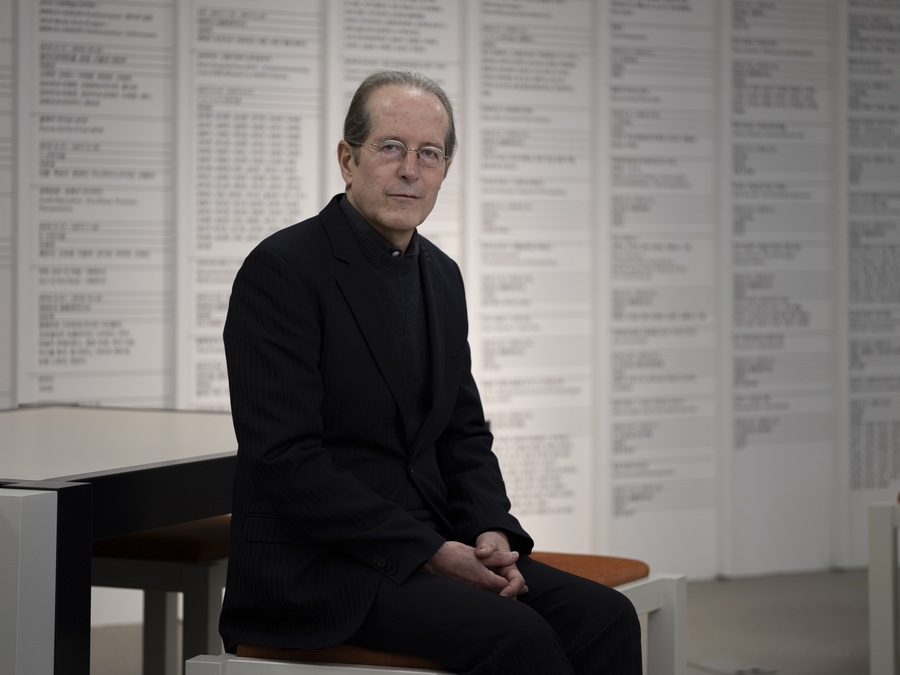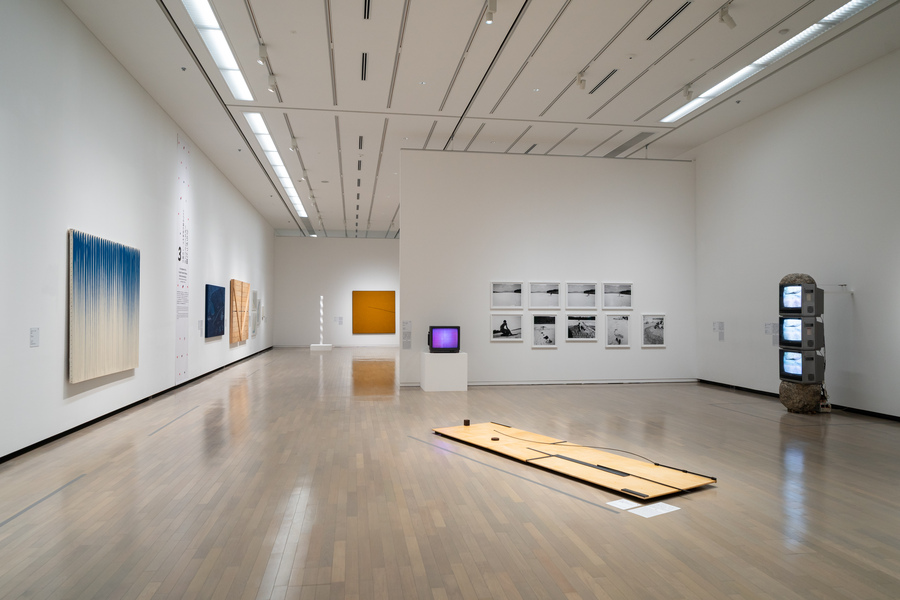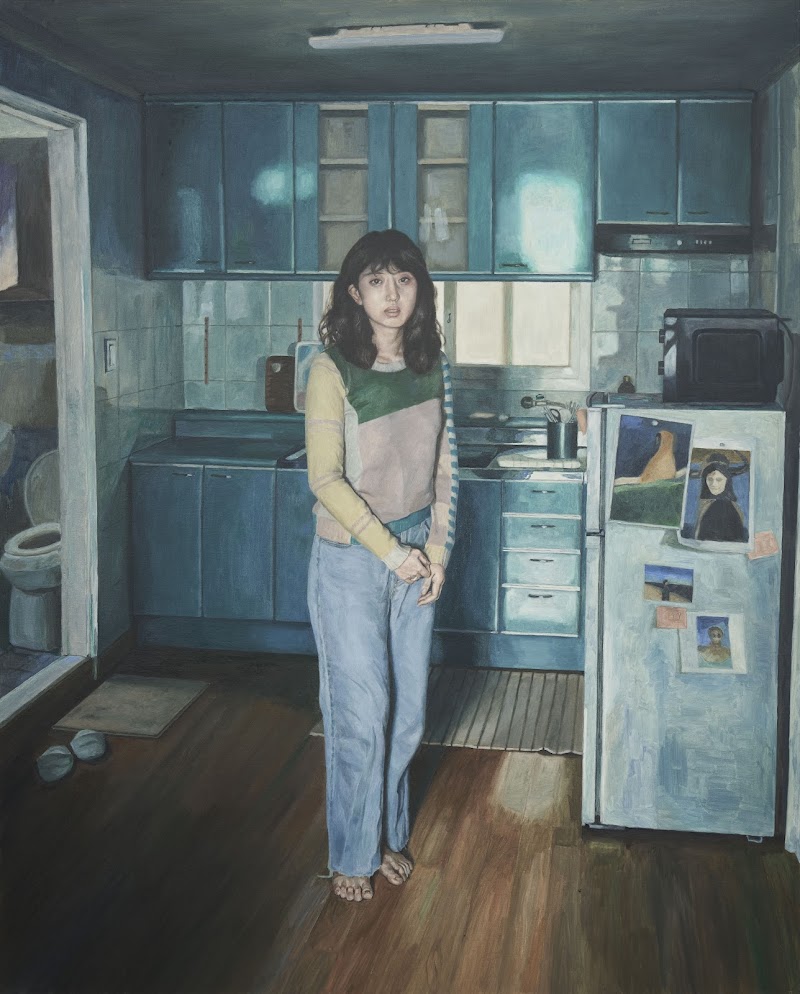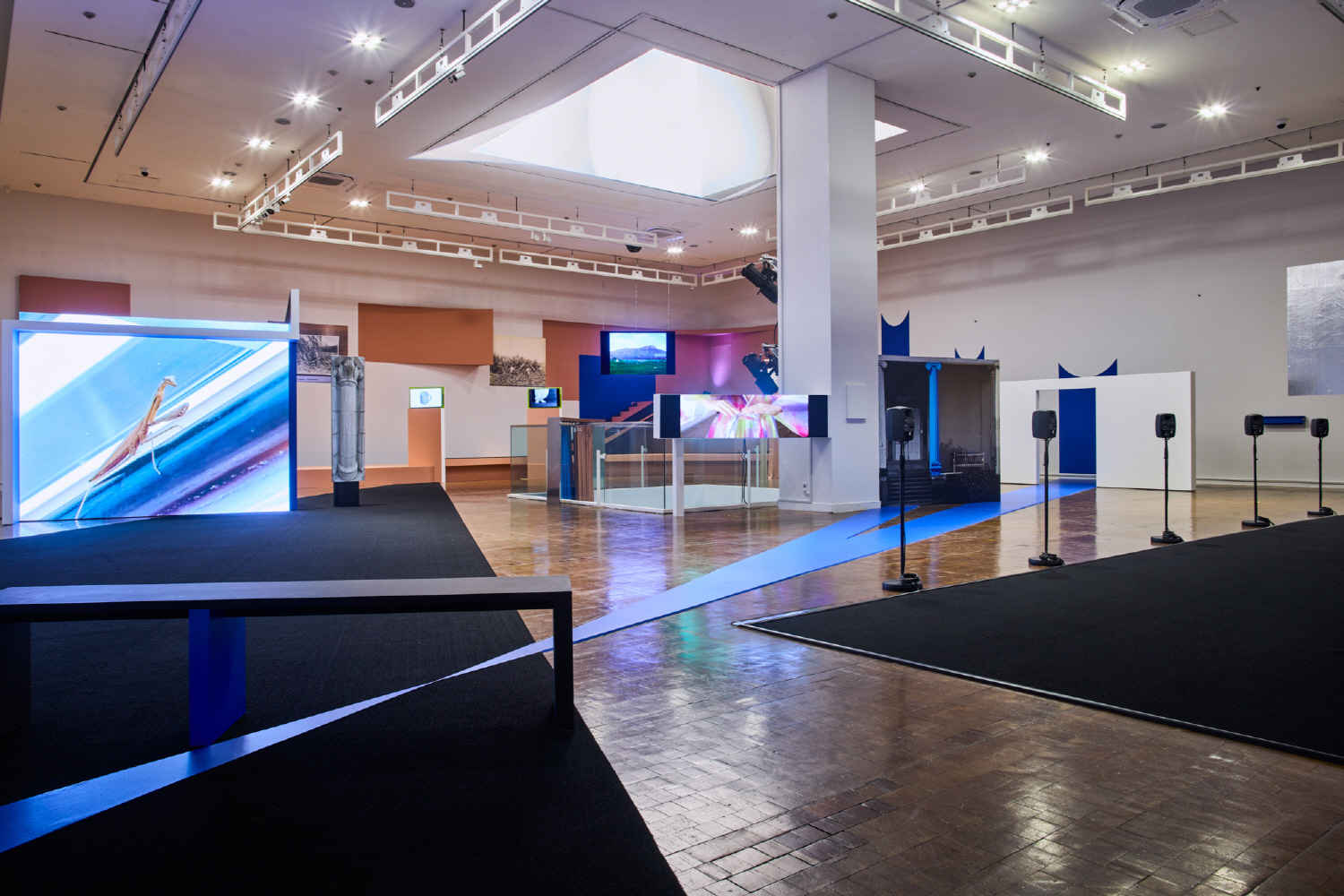 Installation view of “Ua a‘o ‘ia ‘o ia e
ia 우아
아오 이아 오 이아 에 이아” ©Sung Hwan Kim. Photo:
Suin Kwon.
Installation view of “Ua a‘o ‘ia ‘o ia e
ia 우아
아오 이아 오 이아 에 이아” ©Sung Hwan Kim. Photo:
Suin Kwon.Seoul Museum of Art (SeMA) presents a solo
exhibition “Ua a‘o ‘ia ‘o ia e ia 우아 아오 이아 오 이아 에 이아”
by Sung Hwan Kim, as its last exhibition of 2024, until March 30. This
exhibition marks the first large-scale solo exhibition at a national public
museum in Korea for Sung Hwan Kim (b. 1975), an artist internationally active
and based in Hawaii and New York.
Kim has presented works that explore the
relationship between social structures and the memories, histories, and
psychological traces embedded within them, drawing from diverse disciplines
such as architecture, film, music, and literature. This exhibition delves
deeply into the artist's oeuvre, focusing on his ongoing multi-disciplinary
series A Record of Drifting Across the Sea (2017~), while
showcasing new works spanning design, two-dimensional art, installations, and
video.
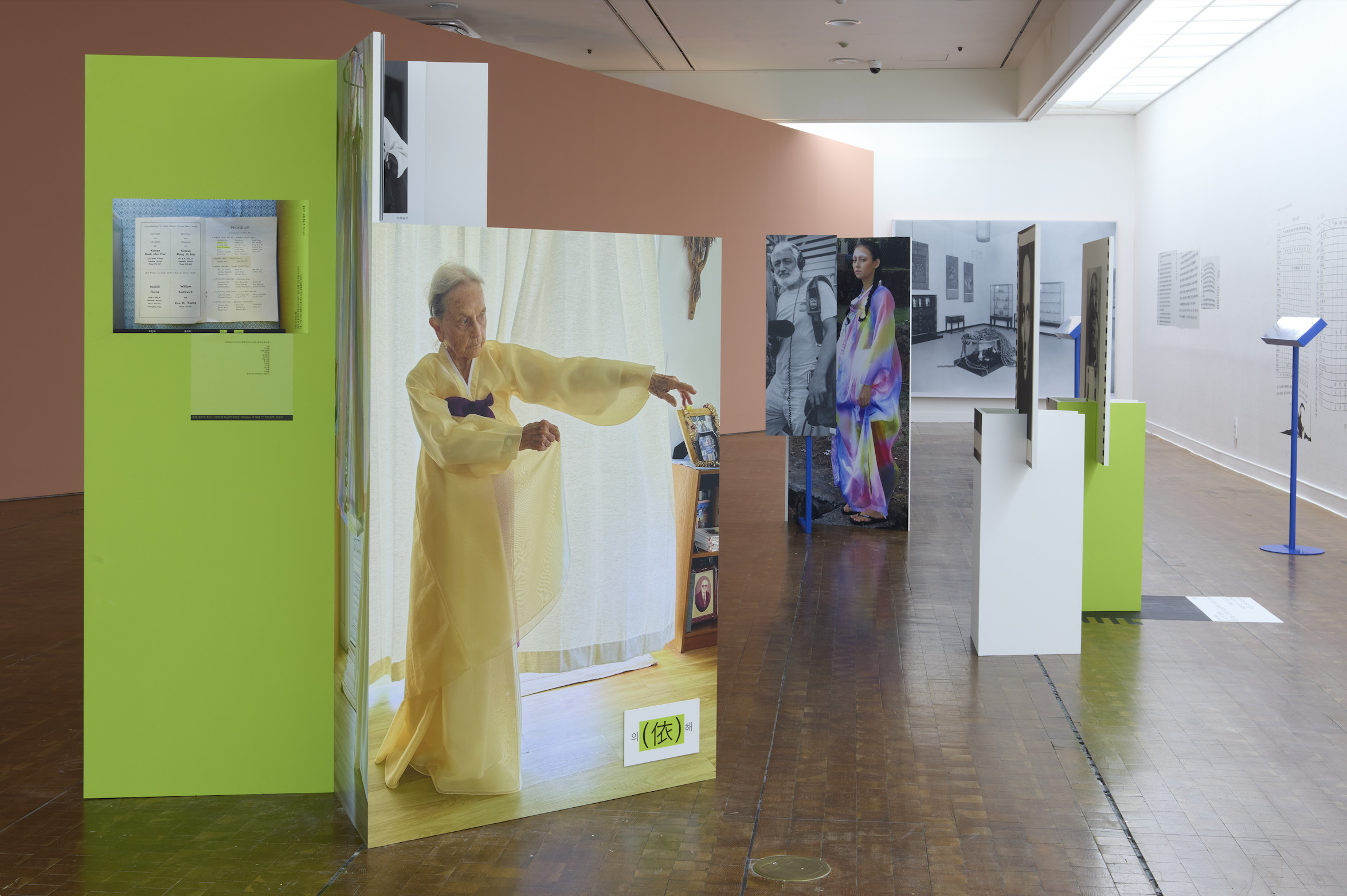 Installation view of “Ua a‘o ‘ia ‘o ia e
ia 우아
아오 이아 오 이아 에 이아” ©Sung Hwan Kim. Photo:
Suin Kwon.
Installation view of “Ua a‘o ‘ia ‘o ia e
ia 우아
아오 이아 오 이아 에 이아” ©Sung Hwan Kim. Photo:
Suin Kwon.A Record of Drifting Across the
Sea (2017~) begins with the stories of Korean immigrants who, in the
early 20th century, traveled from the former Joseon Dynasty through Hawaii to
the United States. By weaving the narratives of many early immigrants who
crossed the Pacific, the project investigates the relationship between
institutions and knowledge through topics such as boundaries, traditions,
records, ownership, and circulation. This exhibition, held at the SeMA,
represents the third chapter of A Record of Drifting Across the Sea.
The exhibition title, "Ua a‘o ‘ia ‘o
ia e ia 우아 아오 이아 오 이아 에 이아," combines Hawaiian and
Korean phonetic notation, encapsulating both the significance of Hawaii as the
central setting of the works and the artist's approach to engaging with the
subject of knowledge. In the exhibition, Hawaii serves not only as a concrete
geographical site tied to modernity and colonialism but also as a conceptual
framework for examining the relationship between institutions and knowledge.
Hawaii is portrayed as a connector of
people across generations, genders, nationalities, and races, transcending its
physical location to become a conceptual space that bridges past and present,
diverse cultures, and boundaries. It challenges existing knowledge systems and
provides an experimental ground for new ways of thinking and perceiving.
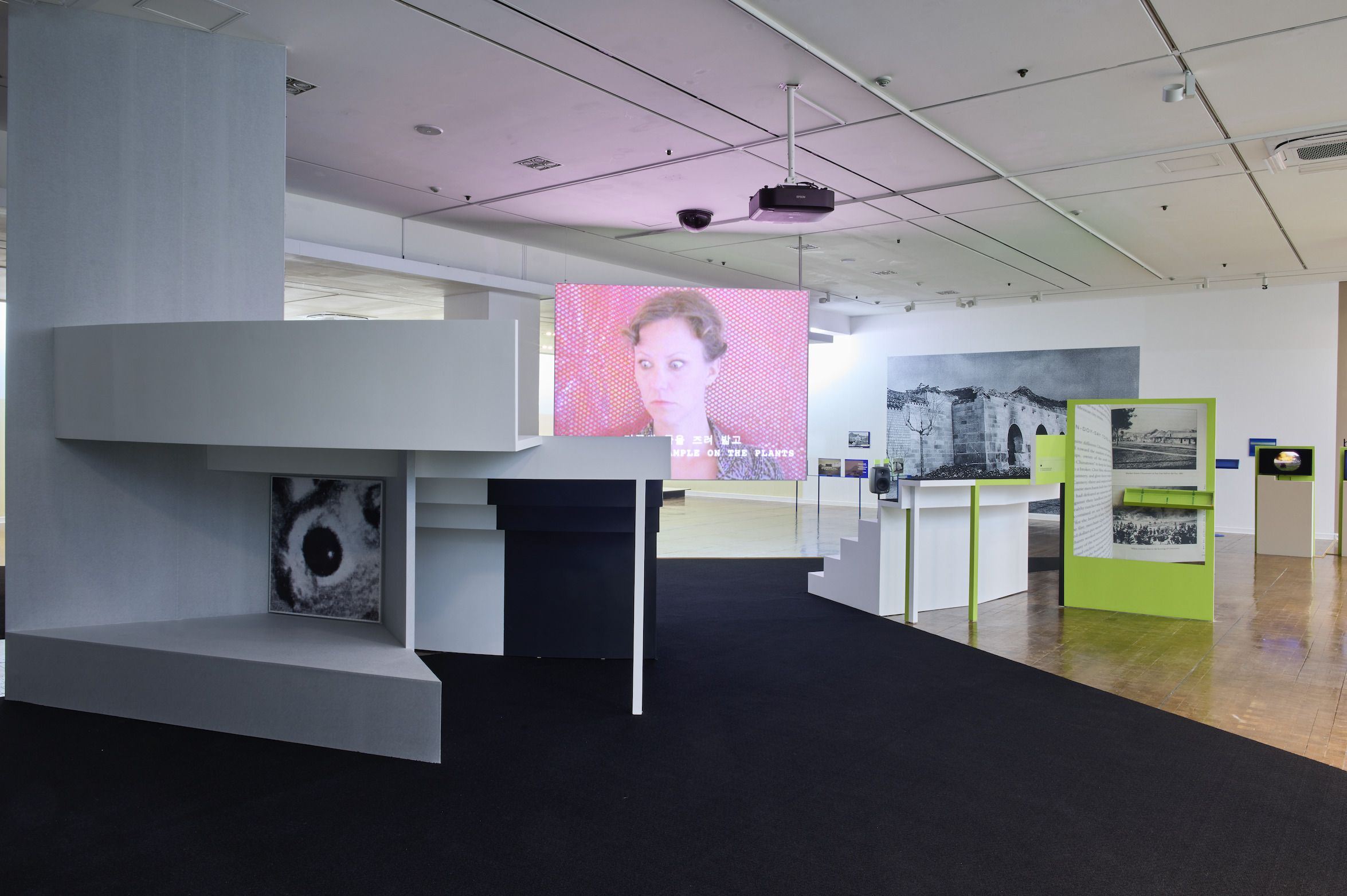 Installation view of “Ua a‘o ‘ia ‘o ia e
ia 우아
아오 이아 오 이아 에 이아” ©Sung Hwan Kim. Photo:
Suin Kwon.
Installation view of “Ua a‘o ‘ia ‘o ia e
ia 우아
아오 이아 오 이아 에 이아” ©Sung Hwan Kim. Photo:
Suin Kwon.This exhibition introduces a novel
curatorial approach. Through an evolving composition over the exhibition
period, it focuses on the relationship between the body and information in the
formation of knowledge. The gallery space (Room 2), functioning as the artist's
editing room and studio, transforms viewers from mere spectators of completed
scenes into witnesses of the process through which an individual’s (the
artist's) thoughts take shape as knowledge (the artwork). Simultaneously, viewers
become active participants in the production of knowledge.



